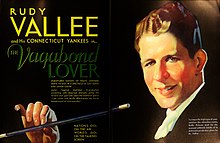
The Hollywood Revue of 1929, or simply The Hollywood Revue, is a 1929 American pre-Code musical comedy film released by Metro-Goldwyn-Mayer. It was the studio's second feature-length musical, and one of their earliest sound films. Produced by Harry Rapf and Irving Thalberg and directed by Charles Reisner, it features nearly all of MGM's stars in a two-hour revue that includes three segments in Technicolor. The masters of ceremonies are Conrad Nagel and Jack Benny.

Hubert Prior Vallée, known professionally as Rudy Vallée, was an American singer, saxophonist, bandleader, actor, and entertainer. He was the first male singer to rise from local radio broadcasts in New York City to national popularity as a "crooner".

This is a list of notable events in music that took place in the year 1929.
RKO Records and Unique Jazz are two record labels which began in 1955 as Unique Records, a New York City pop music record label. After several small pop hits, such as "Man in the Raincoat" by fourteen-year-old Priscilla Wright, the label was acquired by General Tire subsidiary RKO Teleradio in 1957 and placed its owner, Stanley Borden, in charge of its music entertainment division. From 1957 on, the label was billed as RKO/Unique.
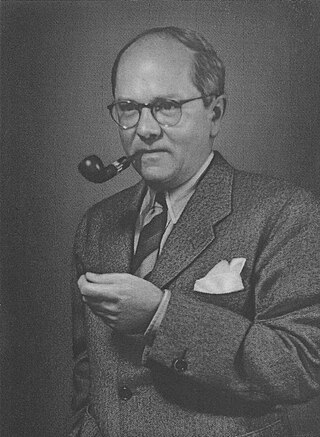
Richard Armstrong Whiting was an American composer of popular songs, including the standards "Hooray for Hollywood", "Ain't We Got Fun?" and "On the Good Ship Lollipop". He also wrote lyrics occasionally, and film scores most notably for the standard "She's Funny That Way".

Marshall Ambrose "Mickey" Neilan was an American actor, director, producer, and screenwriter, whose work in films began in the early silent era.
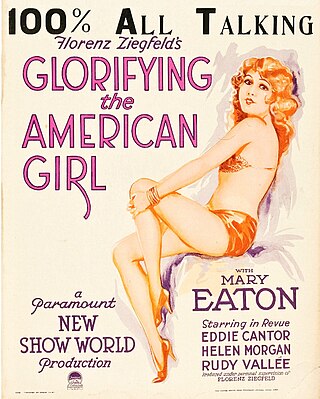
Glorifying the American Girl is a 1929 American pre-Code musical comedy film produced by Florenz Ziegfeld that highlights Ziegfeld Follies performers. The last third of the film, which was filmed in early Technicolor, is basically a Follies production, with appearances by Rudy Vallee, Helen Morgan, and Eddie Cantor.
"P.S. I Love You" is a popular song with music by Gordon Jenkins and lyrics by Johnny Mercer. published in 1934.
Victor Baravalle (1885–1939) was an Italian-born composer, music director, and conductor, best known for his work on both the stage and film productions of the Jerome Kern and Oscar Hammerstein II musical Show Boat.

Gentlemen Marry Brunettes is a 1955 American Technicolor musical romantic comedy film directed by Richard Sale, who co-wrote the screenplay with Mary Loos, based on the 1927 novel But Gentlemen Marry Brunettes by Anita Loos, aunt of Mary Loos. The film stars Jane Russell and Jeanne Crain. It was produced by Sale and Bob Waterfield, with Robert Bassler as executive producer.
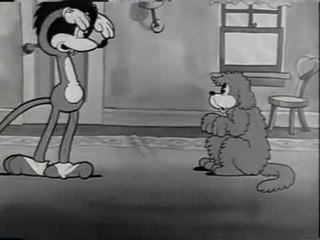
The bouncing ball is a virtual device used in motion picture films and video recordings to visually indicate the rhythm of a song, helping audiences to sing along with live or prerecorded music. As the song's lyrics are displayed on the screen in a lower third of projected or character-generated text, an animated ball bounces across the top of the words, landing on each syllable when it is to be sung.
"Life Is Just a Bowl of Cherries" is a popular song with music by Ray Henderson and lyrics by Lew Brown, published in 1931. Ethel Merman introduced this song in George White's Scandals of 1931. A Rudy Vallée version, recorded in 1931, achieved success. The song was revived in 1953 by singer Jaye P. Morgan.

"Nobody's Sweetheart", also known as "Nobody's Sweetheart Now" and "You're Nobody's Sweetheart Now", is a popular song, written in 1924, with music by Billy Meyers and Elmer Schoebel, and lyrics by Gus Kahn and Ernie Erdman. The song is a jazz and pop standard.
"I Guess I'll Have to Change My Plan" is a popular song published in 1929, with music by Arthur Schwartz and lyrics by Howard Dietz.

People Are Funny is a 1946 American musical comedy film directed by Sam White and starring Jack Haley, Helen Walker and Rudy Vallee. It is based on the popular radio show of the same name and was produced by Pine-Thomas Productions for release by Paramount Pictures.
"Deep Night" is a song and jazz standard with a melody composed in 1929 by Charles E. Henderson and lyrics written by Rudy Vallee. The tune is written in a minor key.

Will Osborne was a Canadian-born American bandleader, trombonist, and crooner.
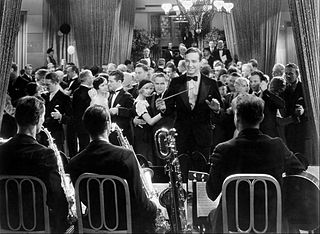
Crooner is a 1932 American pre-Code musical drama film directed by Lloyd Bacon and starring David Manners along with Ann Dvorak and Ken Murray. It concerns the abrupt rise and fall of a popular crooner, Teddy Taylor.
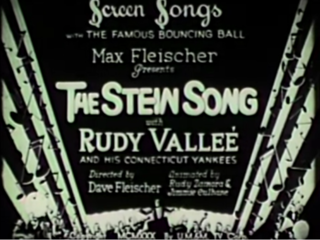
The Stein Song is a 1930 animated short film which is presented by Max Fleischer and was directed by Dave Fleischer. The film, which was animated by Rudy Zamora and Jimmie Culhane, features a sing-along version to "The Stein Song", which was written by Lincoln Colcord and was originally published in 1910. The song is also the school song for the University of Maine.
"The Thrill Is Gone" is a popular song composed by Ray Henderson with lyrics by Lew Brown which was first sung by Everett Marshall in the Broadway revue George White's Scandals in 1931.
